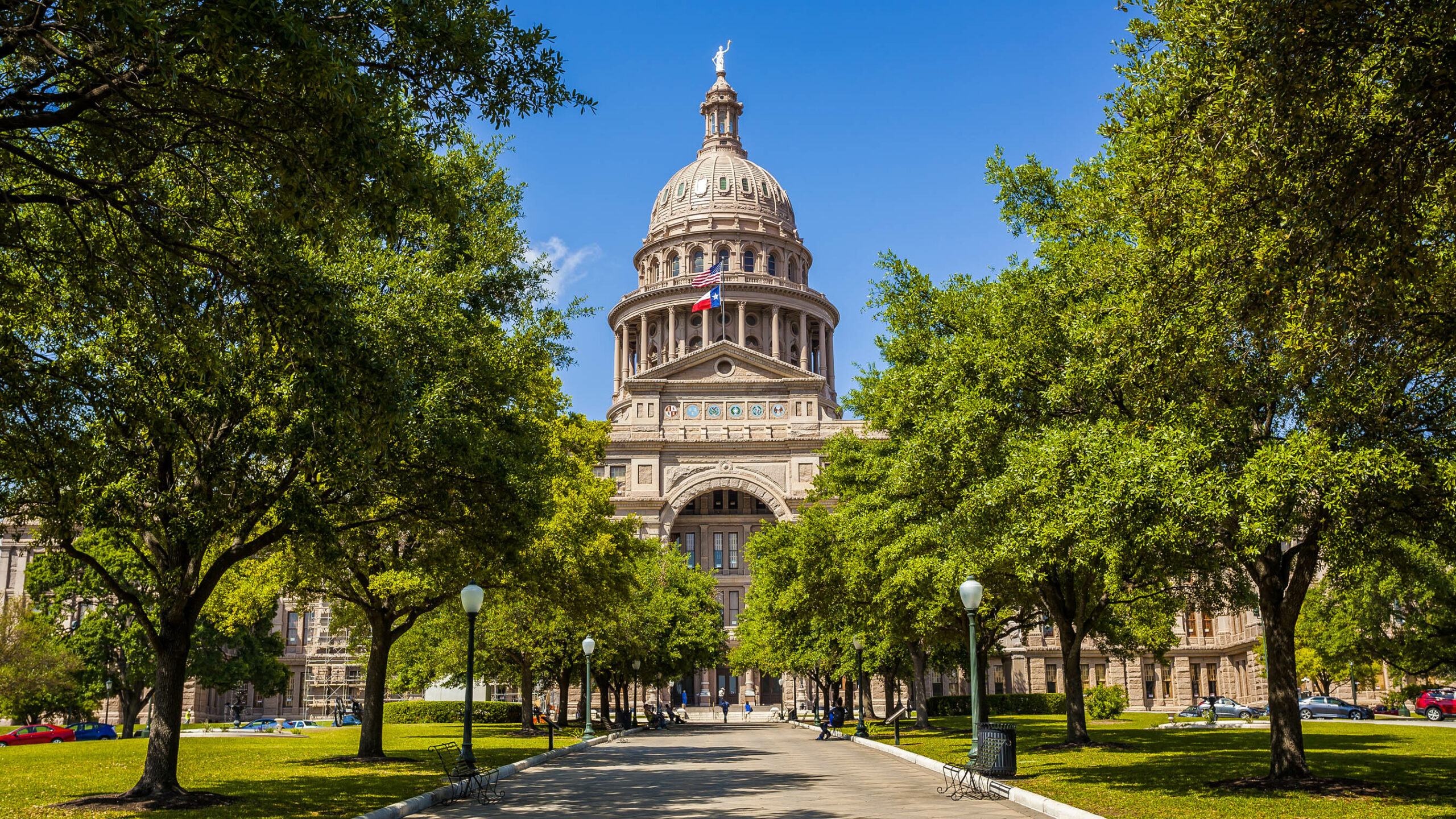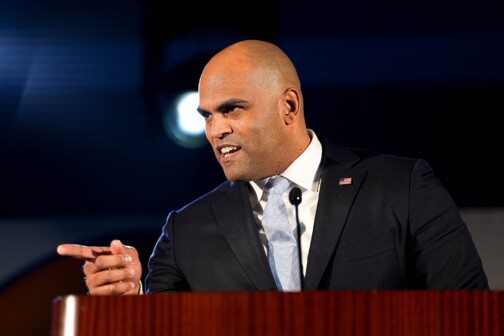More than 900 bills were filed in the state House or Senate on Monday, the first day that legislators were able to file ahead of the 88th Legislative session. Lawmakers gavel in at noon on January 10, 2023.
It was a busy first day, largely because the sooner a bill is filed the more likely it is to proceed through the legislative process. The first 30 bills filed in the Senate have been reserved by Lt. Gov. Dan Patrick to address the GOP’s priorities. In the House, Speaker Dade Phelan reserved the first 20 bills for that body’s GOP priorities. And those priorities are, at this point, secret. That means all the bills that were filed on Monday will be heard after whatever legislation Patrick and Phelan pack in first.
Democrats have filed bills that would create exceptions to the state’s abortion ban by allowing the procedure for sexual assault victims and for the health or welfare of the mother. There are also bills that are clearly influenced by the massacre at Robb Elementary in Uvalde that address the sale of guns.
On the other side of the aisle, Republicans have filed bills seeking to strengthen the state’s legislation of abortion and gender-affirming care. Others explore how to fund—or defund—public schools.
Former State Rep. Jason Villalba says you shouldn’t expect the words “school choice” or “vouchers” to appear in any of the legislation. Instead, he said, look for phrases like “parent empowerment” and bills that would reduce public school funding.
“There are bills that are filed that are meant to appeal to the primary voter, because the conversation among the far right is moving toward the privatization of schools in general and eliminating public schools,” he said. “They know the best way to eliminate public schools is by removing the property tax and moving to some form of sales tax or enrichment tax. They do it every year.”
And while the bills filed the first day generate a lot of talk, Villalba said that many of them are really filed to appease primary voters.
“There is a tremendous amount of disingenuousness among state representatives this time of year,” he said. “Even though it might be something interesting for filing and you can talk about how conservative you are to do this in front of the chamber of commerce meeting or the Republican women’s club, in the end these bills won’t see the light of day and they won’t pass.”
After Gov. Greg Abbott and Patrick easily won re-election last week, Villalba said that Republican legislators are going to feel particularly emboldened to push Texas further right this legislative session.
“What happened on election night suggests that Texas is inoculated from this movement back towards the center that we saw in other parts of the country,” he said. “I think that suggests to the rank-and-file Republican legislator that the state is a strongly conservative state, and you’re seeing that in some of the proposed bills that are coming out today.”
Let’s look at some of what was filed on Monday.
Abortion
Several Republican bills in the Senate and House want to make the state’s abortion ban even stricter. There are already bills prohibiting municipalities from helping people cover the cost of traveling out of state for an abortion. Others would penalize private companies that offer assistance to employees traveling out of state for an abortion.
Democrats have filed bills that would provide carve outs for medical-related exceptions to the current total abortion ban, and for instances of rape or incest. There are also a few bills written to address the fact that there are fewer abortions by eliminating sales taxes on maternity clothes and diapers. Others expand Medicaid coverage for prenatal and postnatal care. State. Rep. Jared Patterson (R-Frisco) filed a bill that would require the father of the unborn child retroactively provide child support from the time of conception forward, when paternity has been proven.
School funding and vouchers
There are a handful of bills related to property taxes, including one (HB 29) that would ban Maintenance & Operations (the big part of your bill) taxes assessed by public school districts, instead allowing them to assess an “enrichment tax.” Districts use M&O funds to pay for things like teachers’ salaries and daily expenses.
Another bill would change the way schools are funded by using the average enrollment of each campus instead of daily attendance. The latter penalizes school funding each day a child is absent, which became a real worry at the height of the pandemic.
At least one school voucher bill has been filed so far. Senate Bill 176 would create a “Texas Parental Empowerment Program” that would allow parents to use an education savings program administered by the state comptroller’s office. Another bill would allow parents to get tax credits to people contributing to educational assistance programs, such as a scholarship fund. Yet another bill would allow parents to be reimbursed for specific education-related expenses, including private school tuition, services for children with disabilities, or tutoring.
The pandemic and the grid failure
The pandemic and the grid failure during Winter Storm Uri are also addressed. State Sen. Nathan Johnson (D-Dallas) filed bills that would seek to provide legislative oversight of the Texas governor’s ability to renew disaster declarations. State Sen. Judith Zaffirini (D-Laredo) filed a bill that would seek to connect the Texas grid to the rest of the country.
Guns
Several Democrats have filed bills that clearly addressing the shooting at Robb Elementary in Uvalde. There is legislation that would raise the age of purchase to 21 for assault-style weapons, another that requires that law enforcement be alerted to sales of multiple firearms to one person, and more laws requiring background checks for private and gun show sales.
School safety
House Bill 34 looks at how schools manage violent students. It requires a principal to investigate if they find “reasonable grounds to believe” a student is engaging in violent criminal conduct. The student can then be sent to a classroom safety review committee. That committee, made up of local law enforcement, teachers, and the parent of the child, determine whether a second-step referral committee needs to weigh in. That second committee would include teachers from the safety review committee and representatives from the county sheriff’s office and district attorney’s office.
Gender-affirming care
House Bill 42, filed by State Rep. Bryan Slaton (R-Royse City) would classify seeking gender-affirming care as child abuse, effectively codifying the recent opinion from Texas Attorney General Ken Paxton. State Rep. Steve Toth (R-The Woodlands) filed two follow-up bills that would criminalize providing gender-affirming care and bar health care providers from offering it, and then eliminate professional liability insurance policies from any healthcare provider that offers the treatments.
Elections
There were several bills filed in both the House and Senate that sought to address election security, generally making the penalty for illegally voting or election fraud steeper.
Senate Bill 118, which was filed by state senators José Menéndez (D-San Antonio) and Johnson, would require counties to put voting centers at university and college campuses that had enrollment of 5,000 or more. It also requires two centers if the campus has 10,000 or more students, and an additional site for each additional 10,000 students.
House Bill 221 would make normally nonpartisan school board elections partisan, requiring those running to declare a party affiliation.
Other bills
Several more bills seek to improve the Texas Commission on Environmental Quality’s approach to concrete batch permits. Not long after the Dallas City Council voted to add decriminalizing fentanyl test strips to its list of legislative priorities, bipartisan bills have been filed in both the state house and senate that would do just that. Testing strips are currently considered drug paraphernalia, and possessing them can result in a fine and up to a year in jail.
Get the D Brief Newsletter
Author






